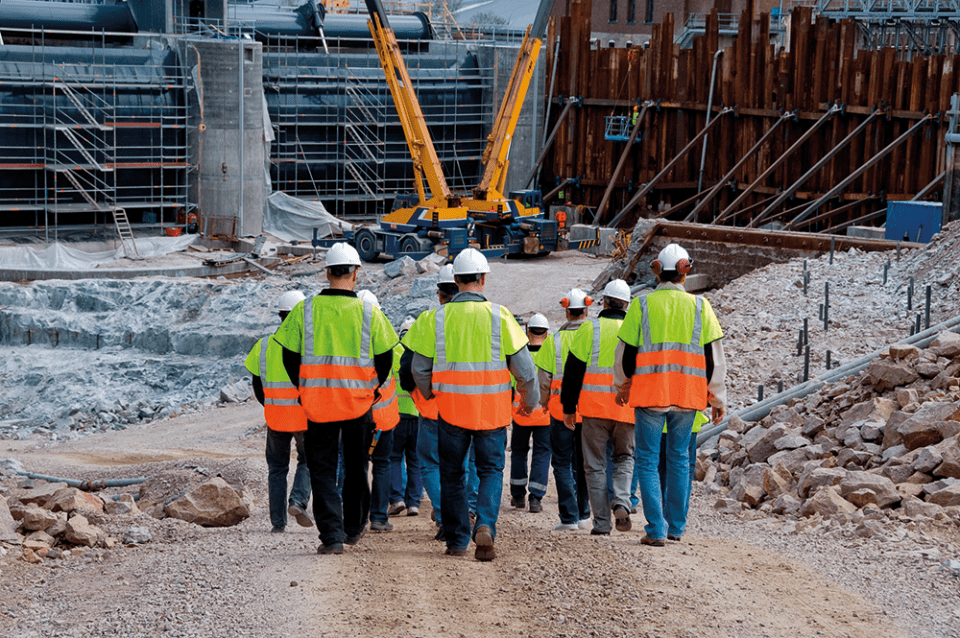The definition of the word ‘transformation’ is “a dramatic change in form or appearance”. Therefore, for something to be ‘transformational’ there must have been change and it must have been significant, dramatic, radical, marked. By Alan Pollard, CEO, CCNZ.
It may come as no surprise I get frustrated and (frankly) angry at the indiscriminate use of the buzzword “transformation” by government and agencies.
The MBIE has introduced “Industry Transformation Plans”, which it states are “created in partnership by business, workers, ‘Maori’, and government, setting a long-term vision for transformative change and identifying near-term actions that will shift the sector toward realising it.”
We hear constant references to “transformation” in construction, health, education, welfare, water, resource management and local government to name just a few sectors. And we hear we need to “transform” our economy to be able to compete in the global marketplace of the future.
But, just how transformational are we as a country?
We can’t be transformational if we don’t change the way we think about things. And we can’t be transformational if this relies on programmes imposed in a top-down way, as is the case with industry transformation plans, which must be developed in partnership with the people who will be tasked to deliver those plans, and who frankly have a better idea of what is needed to deliver transformational change.
Transformation is not a magical process, but the result of dialogue, discussion, shared vision, agreement, and no small amount of hard work.
I think many of those working in government see transformation as something that happens to others.
The way our immigration policy is set is the classic example of this for me. When I met with the (then) Minister last year, I said if employers are required to be creative and innovative in how they address the critical labour shortage, why shouldn’t employers expect that same level of creativity and innovation from officials?
To my dismay, that appeared to amuse an official in the meeting who proceeded to laugh at the idea.
But, why shouldn’t we expect this from the government? And what would be transformational with respect to immigration policy? Well, the previous Government approach (not just to immigration) is focused on compliance, punishment or punitive action, and a fundamental lack of trust of businesses or employers.
In my view this doesn’t work, and represents an antiquated view of modern commerce. Unscientifically, I would estimate that 95 percent of businesses are great employers who care about their people and want to do the right thing by them, while five percent are unscrupulous employers who want to take advantage of employees for their own gain.
So, rather than judge all employers by the lowest common denominator, how about a process that offers carrots not sticks, incentives rather than punishment.
If you look at the government position on crime, we are told that prison isn’t the answer, but support and rehabilitation is – so, why not take the same approach with business.
I envisage an immigration policy setting where good employers are rewarded perhaps with less red tape, access to a wider range of roles to support their businesses, faster processing and lower costs, whereas poor employers are subject to more rigorous scrutiny, a rehabilitation pathway, or if rehabilitation fails or behaviours do not improve, they face a ban from accessing migrants in New Zealand.
Industry transformation plans often refer to the need to innovate, to deliver more for less, and to lift productivity.
But, if you dig deeply into the root causes of low productivity, you will often find there is a direct correlation with poor procurement practices, a regulatory framework that is not fit for purpose (consenting for example), or some other influence outside the contractor’s control.
I’m not saying there aren’t things the industry can do to aid productivity improvement and therefore transformation. I am saying the biggest transformative change could be to revolutionise administrative processes.
But, this takes an admission that processes are no longer fit for purpose and a willingness to “turn things on their heads” and look at things very differently.
Throughout the election campaign last month we have heard about the need to be better, more innovative, more productive, and more globally competitive. But I heard no inspirational shared vision for the future. All I have heard is “more of the same”. Our nation deserves better from our politicians and officials.
Transformation is not always a positive thing. Almost by definition, it is a tricky thing to get right. There is no shortage of horror stories about transformations gone wrong. And just like the old ‘mad scientist’ trope, poor outcomes result from megalomania and unwillingness to consider the needs of those who are to ‘be transformed’. Getting it right requires licence and consent.
So, here is a challenge. If the Government is truly committed to positive transformation, let’s start the process of thinking about things differently by changing the approach to be truly collaborative, by working in partnership with those responsible for actually delivering a transformative future, and by developing the necessary policy and regulatory changes in a multi-lateral way, not imposing a top-down approach.
Our country can make the positive transformational change needed to secure our future, but it will take a paradigm shift to get us there.
As an industry, we are prepared to take up challenges and work together to achieve ambitious targets. I have seen this from members, who are pouring their passion and energy into creating positive change in their businesses.
The test now, post-election, will be whether the new Government is similarly willing to make this commitment. For the sake of our future, I hope it is.

